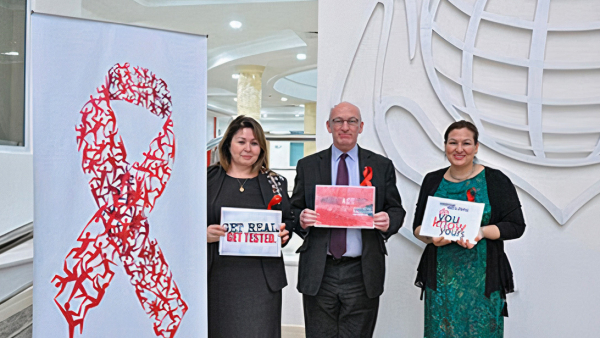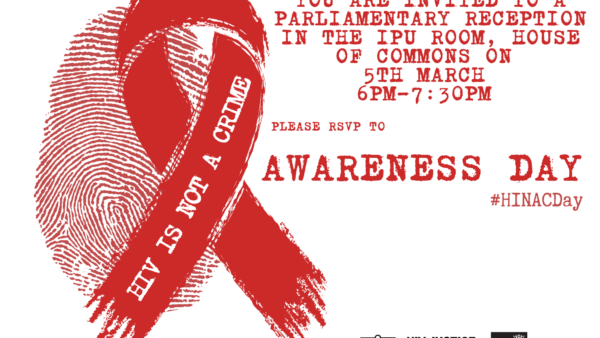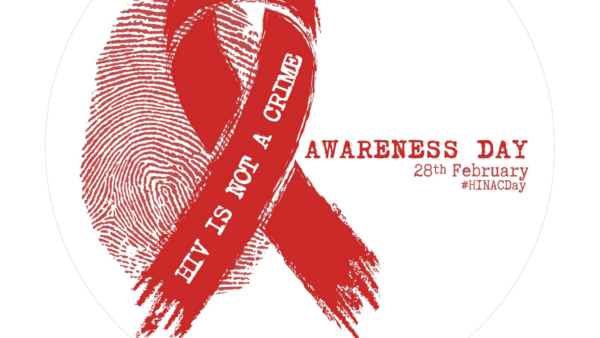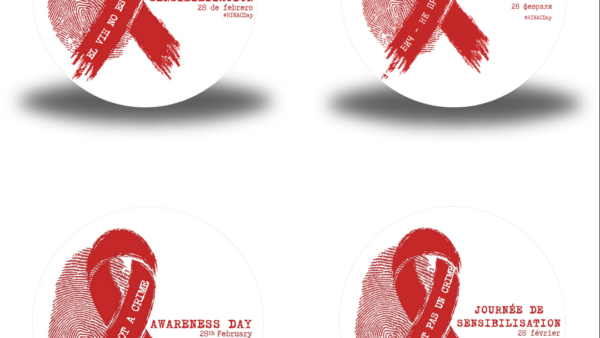
Call ATTENTION TO A MEMBER of the legislative body Congresswoman BERISTAIN: STOP CRIMINALIZATION OF HIV INITIATIVE
NOTICARIBE
POSTED ON JUNE 08, 2017, 11:44 PM 6 MINS POST Views: 1,135
By Leslie Gordillo
CANCUN, MX,- Members of associations called for the commissions of Justice, Human Rights, Development and Family groups in situations of vulnerability and of the Great Commission, in particular Mrs Laura Esther Beristain Navarrete, to reconsider the criminalization of HIV and to lower this initiative, which aims to put people with HIV under a status of potential criminals.
“We cannot allow actions that criminalise and punish and much less from a party that supposedly embraces the causes and unveiled an agenda where you will work with at-risk groups, then it is not being consistent, much less the party and its members in this case, the member of the Commission on Health,” said Roberto Guzman, Network Posithiva of Quintana Roo AC, which joined ICW Mexico and UNAYAC.
This call was made through a letter delivered in the city of Chetumal to groups already mentioned, where the points for consideration, knowing that these commissions are responsible for determining the initiative of “Decree amending Article 113 and is added in the third section, crimes against society, the seventh title, crimes against public health”, which seeks to amend article 113 of the criminal code and the punishment of 5 to 25 years with imprisonment from spreading or becoming infected with dangerous viruses to other people.
Before this, expressed in the letter some clarifications requested were taken into account to avoid an initiative “that violates the dignity and promotes stigma toward people living with HIV”, among which are: the importance of promoting actions in favour of the recognition of the human rights of women in the international order of the various instruments in this field has signed and ratified the Mexican State; not to seek punishment for behaviour that is perceived as wilful misconduct in relation to HIV and other sexually transmitted infections, because the scientific evidence indicates that HIV prevention is not achieved with punitive measures, but with public health policies that facilitate actions that promote changes at the structural level.
Also mentioned that the criminalization stigma and discrimination toward people living with HIV, including girls, children, adolescents and women, so that it is contradictory to promote actions that are contrary to the dignity of these vulnerable groups; the difficulty of determining causality, fraud, the intentionality as a number of factors in HIV transmission, such as: the possibility of the transmission, the type of exposure, the use or not of the condom, the stage of the infection, if you take your antiretroviral treatment or not, if you have a detectable load or not, if there are concomitant diseases, the status of the receiving partner and agreements established between couples.
They emphasized that the punitive measures, such as which is intended to legislate, could hinder and affect the various multisectoral action in the field of prevention, detection and care in our state. Could influence that people perceive HIV risk factors, to bypass an early detection in order not to know their status, in virtue of preventing a possible criminal proceedings.
In addition to the specific content of this initiative of “danger of contagion” could cause the legal responsibility of the HIV prevention falls only on those living with HIV, and this could be invisibilizarse the public health message that sexual partners have shared responsibility about their sexual health. And that this type of adjustments to the Criminal Code will promote higher levels of stigma and discrimination toward the various populations with HIV and their families.
Contrary to this, recounted in the Charter, should label resources to prevent, detect and respond in a timely manner HIV; to improve the quality and comprehensiveness of care services provided from the capasits and hospitals in the health sector; and reduce stigma and discrimination toward the populations affected by HIV and other STIS.
———————————————————–
Le Llaman la atención a Diputada Beristain: Piden asociaciones detener iniciativa de penalización del VIH
Leslie Gordillo
CANCÚN, MX,- Integrantes de asociaciones exhortaron a las comisiones de Justicia, Derechos Humanos, Desarrollo Familiar y Grupos en Situación de Vulnerabilidad y de la Gran Comisión, en particular a la diputada Laura Esther Beristaín Navarrete, a reconsiderar la penalización del VIH y a bajar esta iniciativa, que pretende colocar a las personas con VIH bajo un estatus de posibles criminales.
“No podemos permitir acciones que criminalidad y penalicen y mucho menos a partir de un partido que supuestamente abraza las causas y dieron a conocer una agenda donde va trabajar con los grupos de riesgo, entonces no está siendo congruente el partido y mucho menos sus integrantes en este caso la diputada de la comisión de salud”, expresó Roberto Guzmán, de Red + Posithiva de Quintana Roo AC, organismo que se unió a ICW México y UNAYAC.
Este llamado se hizo a través de una carta entregada en la ciudad de Chetumal a los grupos ya mencionados, en donde expresan los puntos a consideración, a sabiendas que estas comisiones son responsables de dictaminar la iniciativa de “Decreto por el que se reforma el Artículo 113 y se adiciona dentro de la sección tercera delitos contra la sociedad, el titulo séptimo, delitos contra la salud pública”, la cual pretende reformar el artículo 113 del código penal y castigar de 5 a 25 años con prisión a quien contagie o infecte con virus peligrosos a otras personas.
Ante esto, manifestaron en la carta algunas precisiones que pidieron fueran tomadas en cuenta para evitar así una iniciativa “que atenta contra la dignidad y promueve el estigma hacia las personas con VIH”, entre las que destacan:
La importancia de impulsar acciones a favor del reconocimiento de los derechos humanos de las mujeres en el orden internacional de los diversos instrumentos que en esta materia ha suscrito y ratificado el Estado mexicano; no buscar castigo para las conductas que se perciben como dolosas en relación al VIH y otras infecciones sexuales, ya que la evidencia científica señala que la prevención del VIH no se logra con medidas punitivas, sino con políticas en salud pública que faciliten acciones que promuevan cambios a nivel estructural.
Mencionaron también que la penalización favorece el estigma y la discriminación hacia personas con VIH, incluyendo a las niñas, niños, adolescentes y mujeres, por lo que resulta contradictorio impulsar acciones que contravienen a la dignidad de estos grupos vulnerables; la dificultad de determinar la causalidad, el dolo, la intencionalidad ya que intervienen diversos factores en la trasmisión del VIH, como: la posibilidad de la trasmisión, el tipo de exposición, el uso o no del condón, la etapa de la infección, sí lleva tratamiento antirretroviral o no, si tiene carga detectable o no, si existen enfermedades concomitantes, el estado de la pareja receptora y los acuerdos establecidos entre parejas.
Enfatizaron que las medidas punitivas como las que se pretende legislar, podrían obstaculizar y afectar las diversas acciones multisectoriales en materia de prevención, detección y atención del VIH en nuestro Estado. Podría influir a que las personas que se perciban con factores de riesgo ante el VIH, omitan realizarse una detección temprana a fin de no conocer su estado serológico en virtud de prevenir un posible proceso penal.
Además de que el contenido en específico de esta iniciativa de “Peligro de contagio” podría provocar que la responsabilidad jurídica de la prevención del VIH recaiga solamente en quienes viven con VIH, y con ello podría invisibilizarse el mensaje de salud pública de que las parejas sexuales tienen responsabilidad compartida sobre su salud sexual. Y que este tipo de adecuaciones al Código Penal promoverán mayores niveles de estigma y discriminación hacia las diversas poblaciones con VIH y sus familias.
Contrario a esto, relataron en la carta, deberían etiquetar recursos para prevenir, detectar y atender oportunamente el VIH; mejorar la calidad e integralidad de los servicios de atención otorgados desde los CAPASITS y hospitales del sector salud; y disminuir el estigma y la discriminación hacia las poblaciones afectadas por el VIH y otras ITS.









